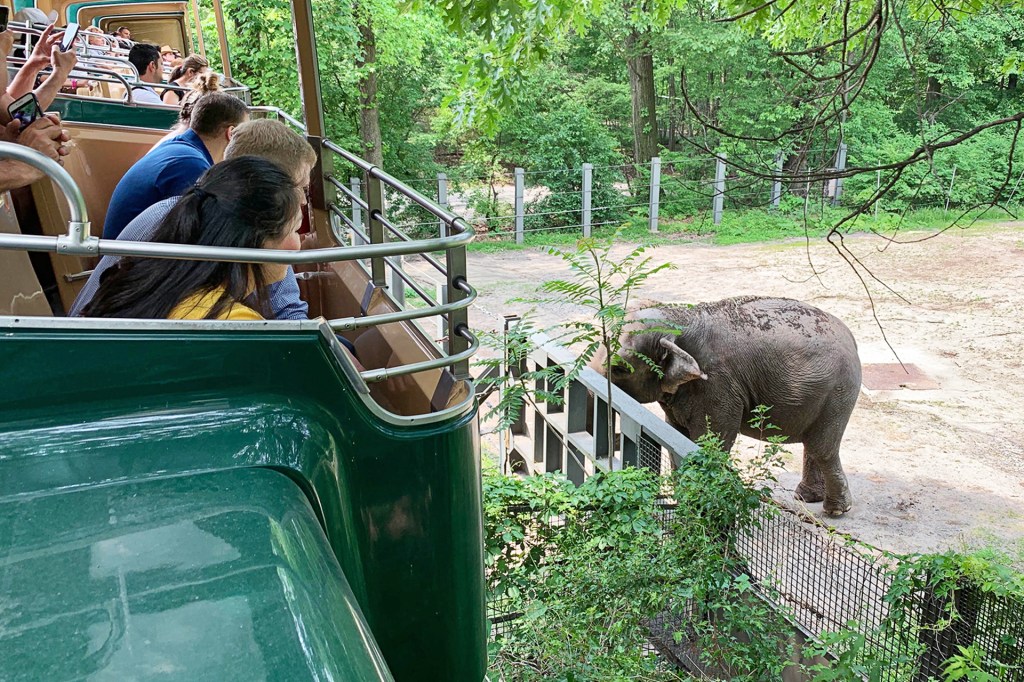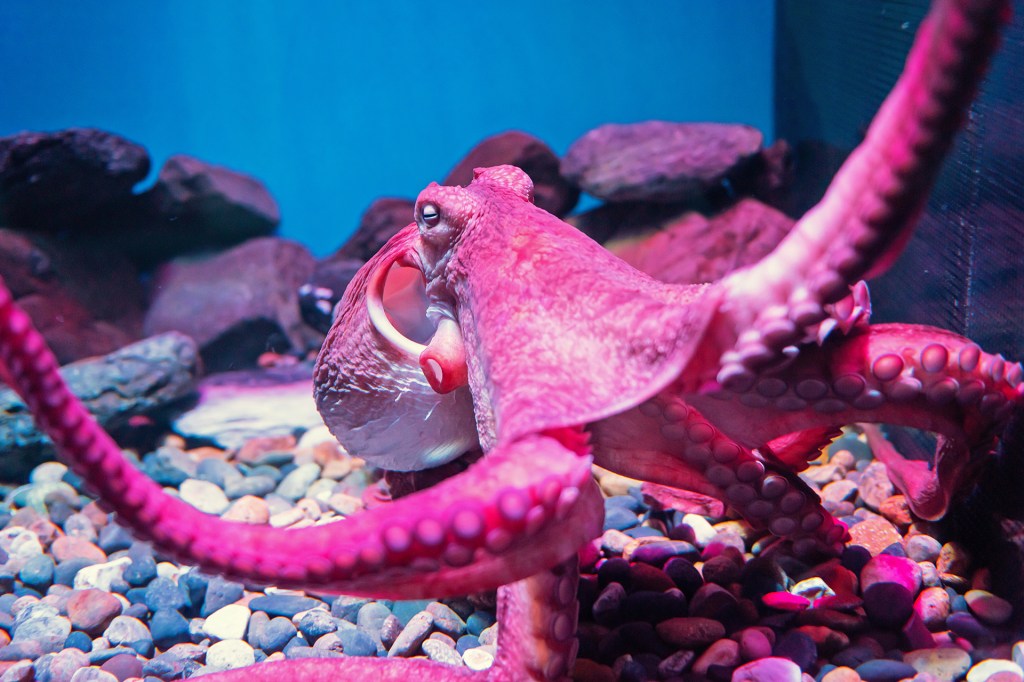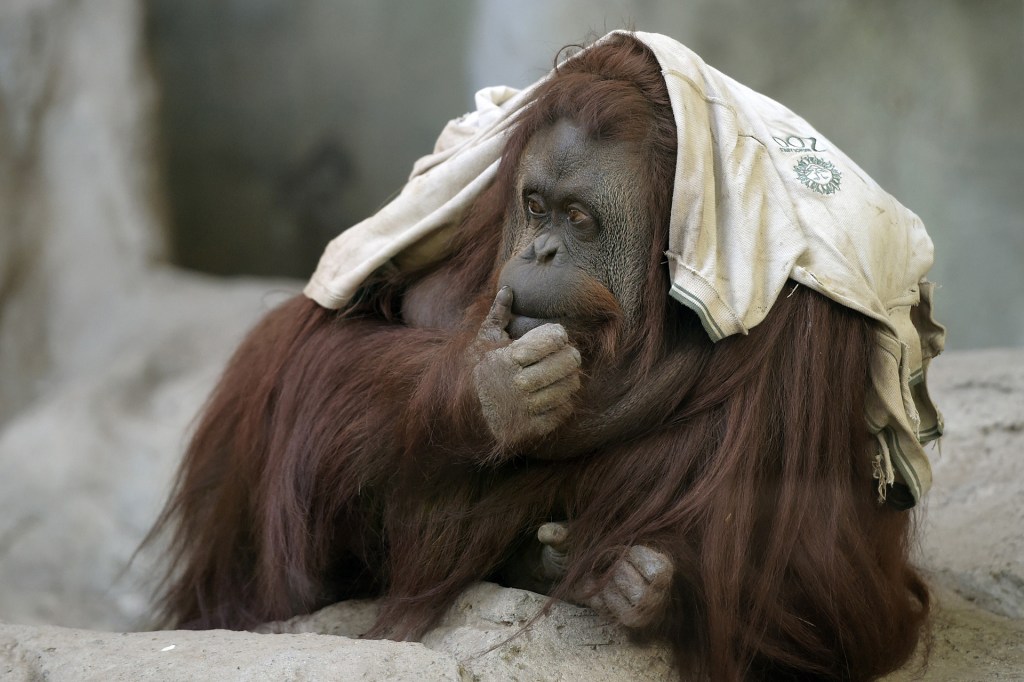Animal Rights

It’s a sunny afternoon at the Bronx Zoo, in New York City. A monorail train approaches the elephant exhibit. A child screeches in delight as a female Asian elephant named Happy comes into view. Happy flaps her ears and wraps her trunk around the fence of her enclosure.
The Bronx Zoo is one of about 60 zoos in the United States where you can see an elephant. With the number of Asian elephants dwindling every year—about 50,000 are left in the wild—a zoo might be the only chance any of us will ever get to see one.

ON DISPLAY People watch Happy the elephant from the monorail at the Bronx Zoo, in New York City.
GIGI GLENDINNINGBut the Nonhuman Rights Project (NhRP), an animal-rights group, says Happy is lonely. A fence separates her from Patty, another elephant. Contact through a fence isn’t enough, the NhRP says. Steven Wise is the group’s president. “We understand what [Happy’s] life means to her,” he says, “which is almost nothing at all.”
So the NhRP is taking the Bronx Zoo to court. The group says Happy should be moved to a sanctuary
sanctuary
 UK NATURAL HISTORY/GETTY IMAGES
a safe place
(noun)
Deer hunting is illegal inside the wildlife sanctuary.
where she can have space to roam and interact with other elephants.
UK NATURAL HISTORY/GETTY IMAGES
a safe place
(noun)
Deer hunting is illegal inside the wildlife sanctuary.
where she can have space to roam and interact with other elephants.

SPEAKING OUT A crowd gathers at the Bronx Zoo to call for Happy’s release to an elephant sanctuary.
LUKAS MAVERICK GREYSONOn the Case
The NhRP’s case against the Bronx Zoo is the first of its kind in the U.S. The group is relying on a legal order meant for humans. It says a person who has been unlawfully imprisoned must be released. Next year, the NhRP will argue in court that Happy should have that same right.
There’s research to support that argument. In 2005, Happy became the first Asian elephant to pass a mirror test. This test is given to see if an animal can recognize itself, the way a person does.
Experts say elephants are intelligent and thrive when they form social bonds. Joyce Poole studies them in Africa. Keeping one in a city is “a recipe for disaster,” she says. “As you can imagine, if you were locked behind bars, there’s not much to do.”

MIRROR IMAGE Studies show that dolphins can recognize themselves. This is sign of high intelligence.
JOE RAEDLE—NEWSMAKERS/GETTY IMAGESThe Zoo’s View
The Bronx Zoo says Happy is well cared-for, and was separated from Patty because the two didn’t get along. Some people claim removing animals like Happy from zoos would be a mistake. Many kids would never grow up with a connection to these animals.
Jodi Gibson is president of the Zoological Society of Milwaukee. She first saw elephants at a zoo when she was 6. “For me, as a child, it opened a door,” she says. “Our greatest hope is for people to want to protect and preserve these beautiful animals.”

BRAINIACS Octopuses, found in many aquariums, can be clever enough to escape from their tanks.
PAKKAWIT ANANTAYA—EYEEM/ GETTY IMAGESAccording to the Association of Zoos and Aquariums (AZA), some 55 million schoolchildren visited zoos each year before the coronavirus pandemic.
Even so, attitudes about zoos are changing. In 2015, SeaWorld considered ending its killer-whale shows. The park had been criticized for keeping the creatures in captivity.

SEA CHANGE Killer whales have long entertained people at marine parks. But the animals don’t thrive in captivity.
HILARY WHITROCK—500PX/ GETTY IMAGES
But zoos reach more people than any other group involved with conservation
conservation
 SCHON—GETTY IMAGES
the preservation and protection of something
(noun)
Michael is interested in forest conservation.
. They’re more important than ever, AZA president Dan Ashe says. He feels that if there’s a time when children can no longer visit zoos and learn to care about elephants, “It’ll come at a great cost.”
SCHON—GETTY IMAGES
the preservation and protection of something
(noun)
Michael is interested in forest conservation.
. They’re more important than ever, AZA president Dan Ashe says. He feels that if there’s a time when children can no longer visit zoos and learn to care about elephants, “It’ll come at a great cost.”
Other Court Cases
In 2014, the Supreme Court of India made waves when it said animal rights are protected under the nation’s constitution. As it banned a bullfighting festival, the court wrote that animals have the right to “live in a healthy and clean atmosphere.” That same year, a court in Argentina ruled that an orangutan named Sandra (pictured) could be freed from a zoo. The ruling was later reversed. But Sandra was still moved to a sanctuary in Florida.












